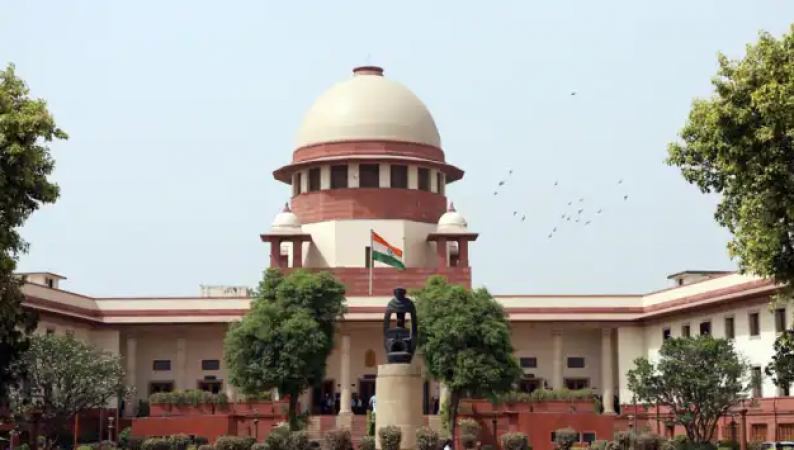
New Delhi: The Supreme Court is likely to deliver a crucial verdict on Wednesday on petitions challenging the constitutionality of several provisions of the Prevention of Money Laundering Act (PMLA). During this time, the top court can clarify what is the constitutionality of the PMLA Act and what are its jurisdictions. The supreme court's decision will also be crucial as it will address a number of issues related to investigations conducted by the Enforcement Directorate (ED), summons to witnesses, arrests and seizures and the bail process under the PMLA Act.
Let us know that more than a hundred petitions were filed on various aspects of the PMLA. After which the Supreme Court clubbed all these petitions together. It will now be heard by a bench headed by Justice AM Khanwilkar. Khanwilkar will retire on July 29. The other judges of the bench are Justice CT Ravikumar and Justice Dinesh Maheshwari. The apex court's decision will have a huge impact on many politically sensitive cases. In these cases, politicians, businessmen and others have faced arrests under the provisions of the PMLA Act. Apart from this, the decision of the top court can also decide the powers of other investigating agencies, including the ED. The court's decision will determine how these agencies will function in any case, both presently and in the future.
Earlier, the petitions filed in the apex court have termed the PMLA Act as unconstitutional, saying its Criminal Procedure Code does not follow the procedure laid down in connection with the investigation and trial of a cognizable offence. In such a situation, its constitutionality will be clear after the supreme court's decision. Under the strict PMLA law, the right to arrest, grant bail, and confiscate property is beyond the purview of the Code of Criminal Procedure (CRPC).
The petitioners have argued in the Supreme Court that the investigating agencies effectively exercise police powers, so they should be compelled to comply with the CRPC while conducting investigations. Since ED is not a police agency, the statements made by the accused to the ED during the course of the investigation can be used in judicial proceedings against the accused, which is against the legal rights of the accused.
Covid-19 Updates: India reports 18,313 new cases, 57 deaths
Dangerous landslide near Lamari, labourer dies painfully
BJP starts preparing for 2024 polls with 3-day meet in Chitrakoot